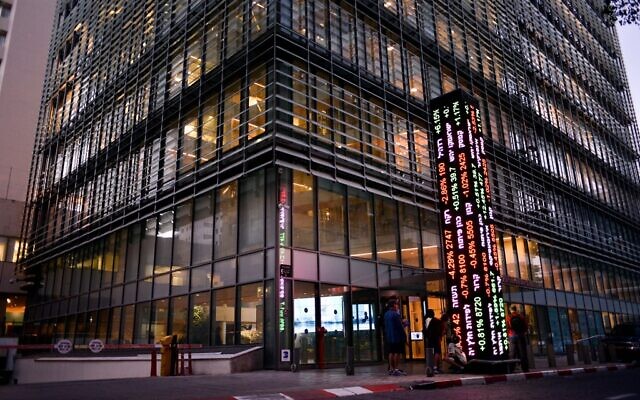Israel’s Economy on Shaky Ground
The war may lead to credit rating downgrades.
In March, Fitch, the third largest credit rating company in the world, warned that the controversial judicial overhaul legislation pushed by the Israeli government could threaten Israel’s credit rating in the future. In July, Standard & Poor’s, the second largest international credit rating company cautioned that the political turbulence around the judicial overhaul threatened Israel’s economic growth.
On Oct. 19, Moody’s, the world’s largest credit rating company, stated that the “unexpected and violent conflict between Israel and Hamas raises the possibility of longer lasting and material credit impact.”
Moody’s announcement said it will review a number of the Israeli government’s credit ratings for a downgrade, including its long-term foreign-currency and local-currency ratings, because of the war. “Israel’s credit profile has proven resilient to terrorist attacks and military conflict in the past,” Moody’s stated. “However, the severity of the current military conflict raises the possibility of longer lasting and material credit impact.”
Earlier this year, Israeli newspapers pointed out that credit ratings change only when the data points to exceptional worsening in the ability of a country to service its debt. And, they noted, it would take a disaster to harm Israel’s ability to do so.
That disaster was unleashed Oct. 7 when as many as 2,000 Hamas terrorists crossed Israel’s border from Gaza and attacked concert goers nearby, killing 260 young people, as well as some 20 communities and a couple of military bases, killing more than 1,000 additional people. Two hundred others were taken hostage inside Gaza.
As the country deals with its shock, while burying its dead and desperately seeking the return of the captives, Israel’s economy has fallen into a major recession, according to Israeli economists.
Two weeks after the Hamas attack, economists estimated the country lost $3 billion in damages on the first day of the war alone, worse than during the 2006 war with Hezbollah in Lebanon. Continuing rocket fire from Hamas in Gaza, as well as Israelis focused more on volunteering to assist survivors of the Oct. 7 attack, have nearly halted the country’s economy. It has been further crippled by the fact that approximately 260,000 Israel Defense Force reservists have been called up for service, leaving behind their jobs. Many of the reservists called up by the IDF are tech entrepreneurs. And no one knows how long they will be required to serve the country instead of their companies.
According to Fitch, “such large-scale escalation, in addition to human loss, could result in significant additional military spending, destruction of infrastructure, sustained change in consumer and investment sentiment and, thus, lead to a large deterioration of Israel’s credit metrics.”
A Bloomberg News report stated that the Israeli shekel is among the world’s worst-performing currencies in October despite several measures taken by the Bank of Israel to prop it up.
Credit downgrades can make future trade more difficult for the Israeli economy which had already been stumbling this year due to the political uncertainty created by the right-wing government of Prime Minister Benjamin Netanyahu.
This summer, the Israel Innovation Authority released a survey showing that 80 percent of start-ups so far this year were opened outside Israel, and that companies intended to register their intellectual property abroad, resulting in a blow to Israel’s tax funds. Private funding of start-ups was also at a five-year low.
Israel’s-high tech industry, the economy’s main growth engine, had been generating about 17 percent of the country’s gross domestic product. It accounts for more than 50 percent of its exports and 25 percent of its payroll taxes. In the first quarter of the year, Israeli high-tech companies raised $1.7 billion, down from $5.8 billion in the first quarter last year, according to IVC Research Center and LeumiTech.
The more than two-week-old war, which is expected to heat up with a likely IDF ground incursion into Gaza, is not only impacting the Israeli domestic economic infrastructure. Tourism is also at a standstill with many international airline carriers and cruise lines canceling Israeli destinations.




comments